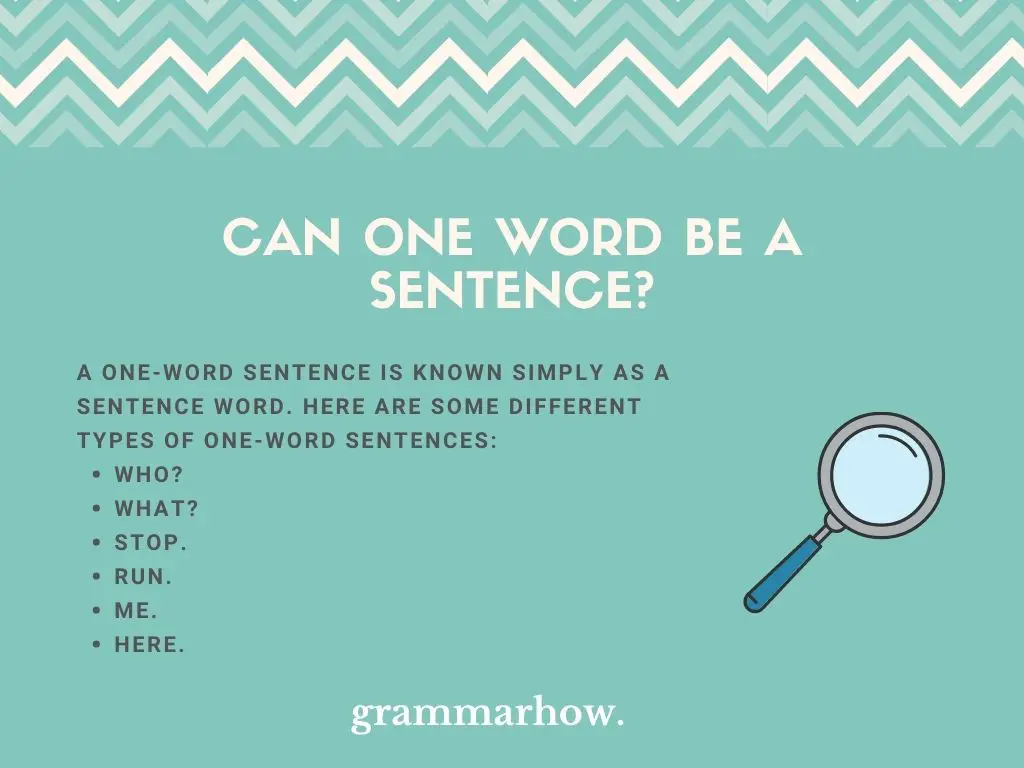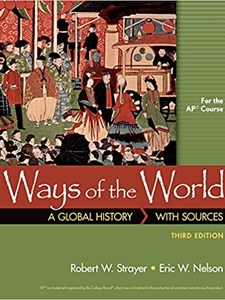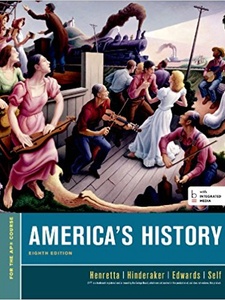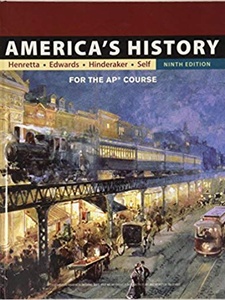-
#1
Hello friends,
I need your help with the following problem.
There are three sentences, with a gap in each of them.
I need to find the one single word (and only one) which can fill all the three gaps and fit properly.
1. I’m sure Maria will ………. for the beach as soon as she’ll be unpacked.
2. How do you think Frizt will …….. each month, with his new job ?
3. He’s achieving great results, I’m sure the management will ……. him sales manager next year.
I couldn’t find anything better than «head», but I’m pretty sure it’s wrong.
A guy who was at the exam with me tried «drive», which is also wrong.
Any suggestions ?
Ciao
Claudio
-
#2
Hi Claudio,
Is there a word missing from the second sentence?
-
#3
Cloudy-aw said:
Hello friends,
1. I’m sure Maria will ………. for the beach as soon as she’ll be unpacked.
Can future tense be after as soon as?
If my memories serve me right, my teacher said never.
-
#4
You’re right, Erik. It should read:
1. I’m sure Maria will …….. for the beach as soon as she’s [she has] unpacked.
-
#5
Hi Claudio,
I can’t find a word that does all three, but I have to say, sentences 1 and 2 sound wrong regardless. «as soon as she’ll be unpacked» is ungrammatical, like you said, and «each month, with his new job ?» seems to have a misplaced comma, and at first glance «with» is incorrect too. «In» would work better, as long as the missing word doesn’t change the structure. Mind you, my observation still doesn’t help much! Sorry!
-
#6
I think the missing word for all three is «make»:
…she’ll make for the beach
How much will Fritz make each month
…management will make him sales manager…
-
#7
Cloudy-aw said:
Hello friends,
I need your help with the following problem.
There are three sentences, with a gap in each of them.
I need to find the one single word (and only one) which can fill all the three gaps and fit properly.1. I’m sure Maria will ………. for the beach as soon as
she’ll beshe has unpacked.
2. How do you think Frizt will …….. each month, with his new job ?
3. He’s achieving great results, I’m sure the management will ……. him sales manager next year.
I couldn’t find anything better than «head», but I’m pretty sure it’s wrong.
A guy who was at the exam with me tried «drive», which is also wrong.
Any suggestions ?Ciao
Claudio
Hello Claudio,
The obvious answer, to me, is «make». But, as La Grive says, there seems to be something missing in the second sentence. That would need the addition of «out» — «How do you think Fritz will make out each month . . . ?»
Regards,
LRV
-
#8
Cloudy-aw said:
1. I’m sure Maria will MAKE for the beach as soon as she HAS unpacked.
2. How MUCH do you think Frizt will MAKE each month, with his new job ?
3. He’s achieving great results, I’m sure the management will MAKE him sales manager next year.
Claudio
Omitted words and other errors MAKE this difficult to correct!
-
#9
Thank you for your kind and prompt replies.
At the exam I couldn’t take note of the sentences, therefore I obviously stuffed them with errors when I tried (with the only help of my memory) to type them in the first post of this thread.
Anyway you all agree that the word is «make».
I have another question : is «make for the beach» a bit colloquial ? I ask because I have never seen such a form. Is it BE ? Or AE ?
Ciao and thank you again
Claudio
-
#10
In BE I say «head for the beach».
Regards,
LRV
-
#11
I agree with Joelline. Even without the mistakes, it is very difficult. I´d guess that «make for» is both BE and AE, though I´ll let the Americams speak for themselves. It´s certainly BE, though a bit unusual, perhaps more written than spoken?
-
#12
In AE I have heard and understand «make for the beach,» although its not the primary way of saying it. We usually say «head to the beach» or «go to the beach.» I am sure there are other but thats all I can think of at the moment.
-
#13
Let me offer sincere sympathy and suggest that you reserve the right to appeal to the European Court of Human Rights. This is cruel and unusual punishment, not a legitimate examination in the use of English.
I’ll accept that it is possible to use make in each of these sentences. But I stress possible and assert that it is unnatural.
-
#14
These are questions that come out in FCE, CAE and CPE.
Here are my attempts:
1. head
2. fare
3. name
-
#15
Ooops, Cracker Jack,
Go back and read the nasty directions again. That was our problem: you had to use the 1 word (the same word) in all 3 sentences!
It is for this reason that the Europeans here will be appealing to the European Court of Human Rights, and the Americans will be appealing to the Supreme Court! This was, indeed, cruel and unusual punishment!
Best,
Joelline
-
#16
If the second sentence is «How much do you think he will make each month, with his new job?», is «make» the correct word then?
-
#17
Hi coconut palm,
Yes, and that’s what I changed it to in post #8.
Joelline
-
#18
Oh, I’m sorry that I didn’t notice the quote!
I promise I will pay more attention next time!
Thank you, Joelline, for confirming my assumption!
-
#19
Joelline said:
Ooops, Cracker Jack,
Go back and read the nasty directions again. That was our problem: you had to use the 1 word (the same word) in all 3 sentences!
It is for this reason that the Europeans here will be appealing to the European Court of Human Rights, and the Americans will be appealing to the Supreme Court! This was, indeed, cruel and unusual punishment!
Best,
Joelline
Oh gee!!! Thanks for reminding me Joelline. That was very careless of me. Well, you have all the right to deplore those bastard-examiners. Not just cruel and usual. It is stupid. Go ahead.
-
#20
«Make for» meaning to go to, or head in the direction of, is not
used with any frequency in AE. It’s found quite a bit in 19th and early 20th century writing, but has fallen out of favor in recent decades.
-
#21
cuchuflete said:
«Make for» meaning to go to, or head in the direction of, is not
used with any frequency in AE. It’s found quite a bit in 19th and early 20th century writing, but has fallen out of favor in recent decades.
Except for occasional appearances, one of them being the written part of the CPE exam I tried last week…
I agree with Cracker Jack’s opinion, although my view is not so mild.
Ciao
Claudio
-
#22
My understanding is that Cambridge questions are tested and a sufficient number of ‘guinea pigs’ must have answered the question for it to have been shown to help in grading candidates’ English ability.
I don’t feel «make for the beach» is so unusual.
-
#23
It’s not unusual if you’re reciting dialogue in a WW II movie about the beaches at Normandy! Otherwise, when is the last time you said it or heard someone say it?
English is a beautiful language, and one of its many perks is the one-word sentences. One-word sentences — as the name suggests is a sentence with a single word, and which makes total sense.
One word sentences can be used in different forms. It could be in form of a question such as “Why?” It could be in form of a command such as “Stop!” Furthermore, it could be used as a declarative such as “Me.” Also, a one-word sentence could be used to show location, for example, “here.” It could also be used as nominatives e.g. “David.”
Actually, most of the words in English can be turned into one-word sentences. All that matters is the context in which they are used. In a sentence, there is usually a noun, and a verb. In a one-word sentence, the subject and the action of the sentence is implied in the single word, and this is why to understand one-word sentences, one has to understand the context in which the word is being used.
Saying only a little at all times is a skill most people want to learn; knowing when to use one-word sentences can help tremendously. However, you cannot use one-word sentences all the time so as robotic or come off as rude.
 Here are common one-word sentences, and their meanings:
Here are common one-word sentences, and their meanings:
- Help: This signifies a call for help.
- Hurry: Used to ask someone to do something faster
- Begin: Used to signify the beginning of a planned event.
Basically, the 5 Wh-question words — where, when, why, who and what? can also stand as one-word sentences.
By Bizhan Romani
Dr. Bizhan Romani has a PhD in medical virology. When it comes to writing an article about science and research, he is one of our best writers. He is also an expert in blogging about writing styles, proofreading methods, and literature.

What does a conjunction do?Where is a conjunction used?What is a conjunction? Here we have answers to all these questions! Conjunctions, one of the English parts of speech, act as linkers to join different parts of a sentence. Without conjunctions, the expression of the complex ideas will seem odd as you will have to use…

Introduction An adverb is a word that modifies a sentence, verb, or adjective. An adverb can be a word or simply an expression that can even change prepositions, and clauses. An adverb usually ends only- but some are the same as their adjectives counterparts. Adverbs express the time, place, frequency, and level of certainty. The…

What is a noun?What are all types of nouns?How is a noun used in a sentence? A noun is referred to any word that names something. This could be a person, place, thing, or idea. Nouns play different roles in sentences. A noun could be a subject, direct object, indirect object, subject complement, object complement,…

What is a pronoun?How is a pronoun used in a sentence?What are all types of pronouns? A pronoun is classified as a transition word and a subcategory of a noun that functions in every capacity that a noun will function. They can function as both subjects and objects in a sentence. Let’s see the origin…

In the English language, sentence construction is quite imperative to understanding. A sentence can be a sequence, set or conglomerate of words that is complete in itself as it typically contains a subject, verb, object and predicate. However, this sentence regardless of its intent, would be chaotic if not constructed properly. Proper sentence construction helps…
It might sound a little outlandish, but you can form sentences with only one word. That’s right; you can write one word and then place a period (or exclamation mark) to close it. This article will explore some examples to help you understand them.
Can One Word Be A Sentence?
Of course, it’s possible to come across one word as a sentence. Here are some of the types that we will mention in this article:
- Interrogatives
- Imperatives
- Declaratives
- Locatives
- Nominatives
- Adjectives
- Adverbs
- Accusatives
- Exclamations
A one-word sentence is known simply as a sentence word. The above types are all the broader words we can use to describe specific types of sentence words. Each one offers a different way for us to use a one-word sentence when they apply.
Interrogatives
Interrogatives are the most common form of sentence words. We use them mainly as questions because they cover the most common words in English like “who,” “what,” and “where.” These words are all simple one-word sentences in the form of direct questions.
Here are some of the best interrogatives you can use:
- Who?
- What?
- Where?
- How?
- When?
- Why?
As you can see, each one is followed by a question mark. This shows that all interrogatives work best when we are directing them as a question toward someone.
It’s also common for the answer to be a sentence word, but it depends on the context. Most of the answers you can give to interrogative sentence words will apply to one of the other sections coming up in the article.
Imperatives
Imperatives are commanding words. We can use verbs to command someone to do something in the imperative case. It’s common for imperative sentences to have only one word because it shows the emphasis and need of someone to follow whatever command you are giving.
Since all imperatives are commands in the form of verbs, these examples should help you to understand them:
- Stop.
- Don’t.
- Leave.
- Go.
- Run.
- Walk.
- Work.
- Return.
Each of these verb forms allows us to give someone a command. The period after each one really emphasizes the need for someone to listen to what we have to say.
It can be easy for some people to ignore commands, which is why the imperative form exists. We can use these sentence words with a stern tone to show that we are only interested in someone listening to us (it’s usually for their own good).
Declaratives
Declaratives allow us to declare ourselves or someone else as an answer. We can use declaratives like “me” when we want to show that we are happy to declare ourselves or our actions in some way. Again, this mostly works when we are replying to specific questions.
There aren’t many good declaratives, but they’re still used. Here are some examples:
- Me.
- Aye.
It’s difficult to come up with many more legitimate declaratives. Some people might argue that “she” or “he” would work, but it’s not common for English speakers to use either of those pronouns as a sentence word.
That’s why “me” is the most appropriate declarative because it’s reasonable to expect someone to declare themselves as a candidate for something.
“Aye” also works because it’s a proclamation that we agree with something.
Locatives
Locatives are a more specific branch of sentence words we can use. They are word forms that always refer to locations. For example, we might say something like “here” or “there” when we are trying to show where something is happening. That’s how locatives work.
Locatives relate to locations, which these examples will make clear:
- Here.
- There.
- Everywhere.
- Nowhere.
- Home.
- Near.
- Far.
- Wherever.
- Somewhere.
As long as a position or place is mentioned in the sentence word, locatives work well. They work when replying to certain questions, so you might benefit from checking out the following examples:
- Where do you live?
- Here.
- Where were they last?
- There.
As you can see, we use them to reply to questions about someone or something’s location.
Nominatives
Nominatives are ways for us to nominate someone else. We can offer names, people, and things in the nominative case. It’s most common to see someone’s name as the nominative form when we are presenting a sentence word answer to a question.
Nominatives can cover anyone’s name, so we’ll include some examples to help you:
- Jane.
- John.
- Sarah.
- Stuart.
- Smith.
- Daniel.
- Craig.
- Lewis.
- Martin.
There are plenty of questions that could lead us to use a nominative form. For example, if someone asked us who completed a specific job, we could provide the name if we know the person that did it.
Technically, we can also provide names of items or objects rather than just people. It mostly refers to things that you can nominate or pick out as a culprit for something, which is why it works well in many different cases.
Adjectives
Adjectives are a common form in the English language. We use them as descriptive words, but it’s also common to see them as sentence words. However, it mostly only applies to informal situations when you want to use adjectives in this manner.
Here are a couple of examples to help you out:
- Pretty.
- Cute.
- Nice.
- Kind.
- Happy.
- Friendly.
- Incredible.
- Amazing.
- Brilliant.
- Gorgeous.
- Ugly.
- Grim.
While it’s easy to easy adjectives in the sentence word form, you might not be entirely sure how to use them correctly. Remember, it’s mostly an informal construct because you would be expected to use more words formally.
You might find it useful to also see a question and answer formation to see how this works:
- What do you think of this artwork?
- Gorgeous.
- How do you find her?
- Pretty.
As you can see, each of the adjective answers allows us to modify a specific noun listed in the question. For example, the first question asked about “artwork,” which we can modify with the responsive adjective “gorgeous.”
The second example used the noun “her,” and the descriptive word was “pretty.”
Adverbs
Adverbs are similar to adjectives. However, they usually include an “-ly” ending after the adjective and modify verbs. We can use adverbs to modify the verb that might have been presented in the previous question. If the question has no verb, an adverb cannot work.
These examples will help you make more sense of what adverbs can do:
- Calmly.
- Softly.
- Easily.
- Quickly.
- Gently.
- Nicely.
- Happily.
- Confidently.
- Rapidly.
- Cautiously.
- Barely.
You might also benefit from the following question and answer examples to help you figure it out:
- Would you take a look at this for me?
- Happily.
- How should I speak when giving the address?
- Confidently.
As you can see, we can only use adverb answers when someone has provided a verb for us to modify. In the first example, we are modifying the verb “look” with “happily” to show that we’re happy to take a look at what they’ve done.
The second example modifies the verb “speak” with “confidently” to show that we have a specific desire to listen to someone speak with a confident tone.
Accusatives
Accusatives are exactly what the name would suggest they are. We can use them to accuse someone specifically. The most common way for us to do this as a sentence word is by using object pronouns to point the finger toward someone you might have done something wrong.
If you don’t know what we mean, these examples will clear things up:
- Him.
- Her.
- Them.
- That.
- It.
- You.
- Me.
- Us.
Accusatives work well when someone has asked us for a culprit. If we know that someone has done something wrong (or even if we know that someone will be helpful to answer a question), we can use this form.
Here are some examples that should help you:
- Do you know who did it?
- Him.
- Who is the smartest person here?
- Her.
It doesn’t always have to refer to bad things. Sometimes, we can use the accusative form just to pick someone out from a crowd. It’s a quick way for us to respond to a question with a pronoun rather than an explanation.
Exclamations
Exclamations are another really common form of sentence words. A simple “yes” or “no” can apply when we are using exclamations. They are called exclamations because they allow someone to exclaim their answer to a question without more explanation.
Here are a couple of examples that will help you to figure it out:
- Yes.
- No.
- Maybe.
- Oh.
There are plenty of other exclamations in English, and some people will treat them more as interjections. For example, you might be familiar with ones like “huh” or “err.”
However, we didn’t want to include these ones because they’re not technically words that you can use in English. It’s always best to stick with ones that actually have definitions, which is why we thought it was reasonable to only include a handful.
Now you have all the necessary information to help you start using sentence words yourself. Exclamations tend to be one of the most common ways to do this without even thinking about it, so get to work!
Martin holds a Master’s degree in Finance and International Business. He has six years of experience in professional communication with clients, executives, and colleagues. Furthermore, he has teaching experience from Aarhus University. Martin has been featured as an expert in communication and teaching on Forbes and Shopify. Read more about Martin here.
Recommended textbook solutions
Ways of the World: A Global History
3rd Edition•ISBN: 9781319022723Robert W. Strayer
232 solutions
America’s History for the AP Course
8th Edition•ISBN: 9781457628931 (2 more)Eric Hinderaker, James A. Henretta, Rebecca Edwards, Robert O. Self
470 solutions
America’s History for the AP Course
9th Edition•ISBN: 9781319065072Eric Hinderaker, James A. Henretta, Rebecca Edwards, Robert O. Self
961 solutions
U.S. History
1st Edition•ISBN: 9781938168369John Lund, Paul S. Vickery, P. Scott Corbett, Todd Pfannestiel, Volker Janssen
567 solutions
1.He’s a nice boy and he’s very bright but he doesn’t do much work.
A bright light shone through the open curtains.
She likes wearing bright colours, but her sister always wears black.
2.The colourful picture should attract the children’s interest.
My son will soon attract the majority of the shares in the company.
Be careful! I don’t think that branch will attract you.
3.She’s always on the spot — I don’t know how she has the energy.
He’s going to start his own company, which sounds like a smart spot.
Be careful ! They’ll be watching your every spot.
4.She set the tray down on a table next to his bed
The teacher set the class some work to do.
The princess was given a neckless set with diamonds and emeralds.
5. The fog and ice meant that it was a very ……… journey.
Business is rather …….. at present but we hope it will pick up soon
You’d better check the time — the clock might be a few minutes ………
6.She had dark circles around her eyes from too many sleepless nights
The thieft escaped with a diamond brooch,two gold circles and some cufflinks.
Only one of the circles on the electric cooker is working
Check this out
Image by Ozzy Delaney on Flickr.com licensed under CC BY 2.0.
Here I’m going to highlight some of the simplest sentences in English. All of these sentences are only ONE word long! Sit back, relax, and enjoy; these are going to be some of the easiest English sentences you’ve ever learned. (It is about time something in English was easy, right?!)
One-word sentences in English come in a few different forms:
interrogatives or questions (example: Who?)
imperatives or commands (example: Stop!)
declaratives (example: Me.)
locatives (example: Here.)
nominatives (example: Jesse.)
In fact a lot of words in English can be one-word sentences, it all depends on the context.
A complete sentence, even a one-word sentence, needs to have a noun and a verb. In one-word sentences the subject (noun) or the action (verb) of the sentence is implied. That means it is understood in the context of the sentence (or the sentences around it) so that the subject and/or verb do not need to be stated explicitly.
Being brief and saying as much as you can in as few words as possible is something a lot of people want to do. Be careful though, sometimes you can sound robotic or rude if you use too many one-word sentences.
Here is a list of some common one-word sentences. I’m sure you already use some of these. Along side the one-word sentences I have written out what you could say, with more words, to mean the same thing.
Hi. (Hi there.)
Wait. (Please wait.)
Begin. (You may begin.)
Stop. (You need to stop.)
Hurry. (Hurry up please.)
Catch. (Catch this.)
Here. (Here you go.)
Go! (Get going now!)
Help! (I need help!)
Eat. (Go ahead and eat.)
Yes. (Yes, that would be great.)
No. (No, thank you.)
Thank you. (Thank you, I really appreciate it.)
The wh-question words: Who? What? Where? When? Why? How?
A lot of swear words: Sh*t., F*ck., etc.
Do you have a favorite one-word sentence? Add to this list by posting a comment below! Thank you.
Your English teacher is probably correct in the sense that those are the only complete, grammatically-correct sentences that contain only one word. But in common writing we often use one-word statements that are not complete sentences. Like Robusto’s example, «Where are you going?» «Home.» «Home.» is not really a «sentence» as it contains neither a subject nor a verb but just an object. It conveys no clear meaning by itself, but only when heard with the preceding question. But I wouldn’t be afraid to use such statements. They’re perfectly acceptable to all but the most annoying pedants.
When I was in school, teachers often insisted that on a test, all answers must be complete sentences. So if the question was, say, «What is the capital of France?», a student who wrote «Paris» would be marked wrong. The student was required to write, «The capital of France is Paris.» Which always struck me as rather silly: the question is right there, the teacher and I both know what it is, why do I need to repeat it? I recall my chemistry teacher once saying that on his tests it was NOT necessary to do this. That if he asked, «What chemical reaction occurs when you mix NaCl and AgNO3?», you should just write the resultant chemicals, it was not necessary to write, «Yes indeed, a chemical reaction occurs when you mix NaCl and AgNO3. …»








